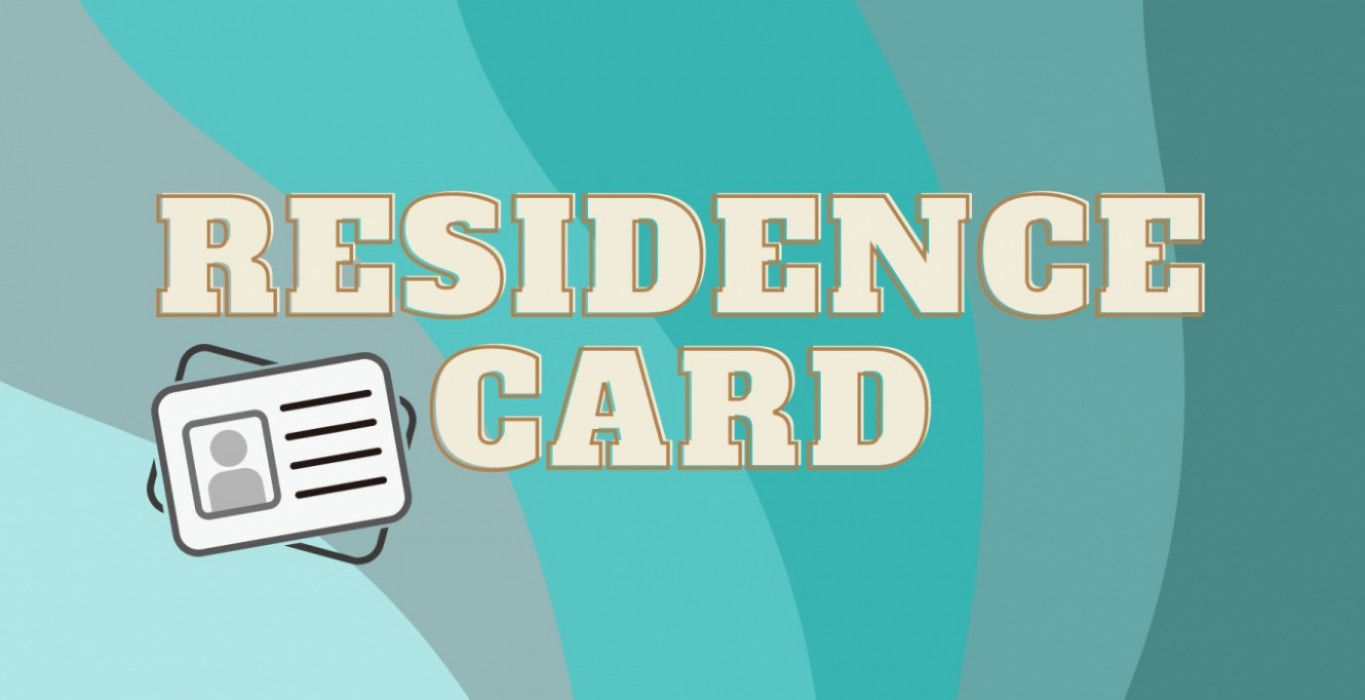Naturalization is the next step if you’re intending to stay in Japan for the rest of your life. There are many things you should know before taking this big step. The very first being what naturalization actually is, the criteria, process, advantages/disadvantages, and other factors depending on your nationality.
Table of Contents
- Introduction to Naturalization
- Becoming a Japanese Citizen
- Frequently Asked Questions About Japanese Citizenship
- Takeaway
Introduction to Naturalization
What is naturalization?
The dictionary meaning of naturalization is the process or act of a foreigner being admitted as a citizen of a country.
In Japan, naturalization is allowed under the Nationality Law that was first implemented in 1950. Naturalization is covered under Articles 4 to 10 of the legislation. Approval to naturalize is to be obtained from the Minister of Justice.
The application procedure can take a significant amount of time, partly due to the amount of paperwork to be completed. Thus, planning in advance is highly recommended. Messing up the paperwork would cause significant delays and a lot of stress, so immaculate preparation is key.
※ The Ministry of Justice, "The Nationality Law"
Why should I become a Japanese Citizen?

If you’re reading this article, you’re probably thinking of naturalizing to become a Japanese citizen. It’s a big decision that should not be taken lightly, consider your reasons as well as the perks of being a Japanese:
-
No more VISA renewals (and accompanying stress)
-
Can get the World’s Best Passport with Visa waiver to 192 countries, as ranked by Henley Passport Index for the year 2021
-
Right to vote
-
Career freedom, no more bound by Visa type and foreigner restricted industries
-
Free to enter and leave Japan, no staying out of Japan limit unlike Permanent Resident
-
Can work in public / government sector
-
Easier to find accommodation, get loans, credit cards, etc. - things that hold more value in long term stay
-
Not necessary to carry around Resident Card anymore
-
No more double-taxation (if applicable)
※ Henley & Partners, “The Henley Passport Index: Global Passport Ranking”
What am I giving up to become a Japanese citizen?
For one, Japan doesn’t recognize dual citizenship, so you will have to give up your current citizenship. Despite there being several lawsuits trying to overturn this non-dual citizenship law, they have not been successful as Japan remains steadfast against dual citizenship.
With the loss of your previous citizenship, you will need a VISA to return to your home country (if it is not a VISA-waiver country). Also keep in mind that relinquishing citizenship may be irrevocable in some countries, so check up on your country’s rules beforehand.
※ Reuters, "Japanese court rejects expatriates' bid to cling to citizenship" ※ Investment Migration Insider, "On Japanese Citizenship and Naturalization Policies and How They May Change" ※ Japan Times, "Tokyo court backs ban on Japanese holding dual nationality"
Writer's Pick
Becoming a Japanese Citizen

Now that you know what the benefits and consequences of naturalization are, let’s look into how to become Japanese.
Criteria for Naturalization
The conditions for naturalization are clearly stated in Article 5 of the Nationality Law as follows:
-
Domicile: At least 5 years consecutive stay in Japan with valid residence status
-
Conduct: Good manner and conduct
-
Legal Capacity: Over 20 years old with legal capacity in home country
-
No Dual Citizenship: Willingness to relinquish nationality
-
Self Sustainable: Personally, or through another (spouse, family), financially secure and capable to survive in Japan
-
No Trouble: Not involved, participated, advocated against the Japanese government and constitution.
-
Japanese Proficiency: Intermediate level. Know Hiragana, Katakana, simple Kanji and can hold up in conversation.
You are expected to have a certain level of Japanese proficiency which is also important for the interview part of the application. Even if you do not fulfill all the conditions above, subject to approval, you can still be approved for citizenship in the case of any one of the following:
-
Long Term: 10 years consecutive stay in Japan
-
Japanese Roots:
-
Birth parent is/was Japanese national or born in Japan + 3 years consecutive stay; or
-
Japan born + 3 years consecutive stay
-
-
Marriage: 3 years marriage to Japanese citizen + 1 year consecutive stay
Other exceptions are stipulated in the statute, but as always subject to approval.
※ The Ministry of Justice, "The Nationality Law"
Procedure for Naturalization
Without further ado, let’s look into the steps to naturalize:
-
Initial Consultation: A personal visit to the Legal Affairs Bureau on eligibility and any other questions you have.
-
Documents: The tedious part where you secure a lot of documents from various places.
-
Apply: Fill and submit application forms. Don’t forget the documents.
-
Wait: Assessment of your application and documents.
-
Interview: This will be done a few months after application, and most importantly conducted in Japanese.
-
Results: Receive notice whether approved or denied. Get a certificate of naturalization if approved, if denied you can apply again.
-
No Delay:
-
Visit your ward office 区役所 to update your status within one month
-
Return your resident card to immigration
-
Get your own family registry
-
-
Final Touches: Update everything else on official documents like driving license
※ 2021 Tokyo Intercultural Portal Site, "Entry to Japan, residence, naturalization"
Essential Documents

What documents are required?
Here’s a checklist for you:
-
Application Form with applicant photo attached
-
Document Stating Family Information - Name, Age, Address, Occupation, Relationship
-
Family Register 戸籍謄本
-
Marriage Certificate
-
Birth Certificate
-
-
Resume 履歴書
-
Proof of Academic Qualifications
-
Proof of Certifications
-
-
Letter of Reason for Naturalization (Preferably handwritten)
-
Proof of Livelihood Capabilities / Financial Stability
-
Household Statement of Income
-
Rental Agreement
-
Bank Account Statement, or bank book 通帳 if available
-
Proof of Income, like Salary Slips 給与明細書 or Working Certificate 在勤証明書
-
-
Proof of Tax Payments
-
Tax Return 確定申告書
-
! Be careful of delinquent tax!
-
-
Proof of Residence
-
Residence Certificate 住民票 from Ward Office
-
-
Proof of Nationality
-
Passport
-
Birth Certificate
-
-
Resident Card
This checklist is a case by case basis as every applicant’s situation is different. Your nationality, academic background, career history, whether you’ve moved houses recently, running your own business, holding any investments, whether you’re married or single, will affect what is required.
One example is if you are applying for citizenship together with your spouse. Along with your spouse’s own set of documents, you will also need to elaborate on your relationship. Dating and marriage photos will help with your application.
Note that any non-Japanese documents will require translation.
※ Ministry of Justice, “Nationality Q&A” Q.11
Frequently Asked Questions About Japanese Citizenship

Does Japan recognize dual citizenship?
We’ve covered this above, but let’s go into more detail.
There has been intense debate (and lawsuits) on whether Japan should accept dual citizenship, and for now, the answer is no. The reasoning behind this stance is the difficulty in dealing with taxation matters and security issues, which is understandable.
Even so, there seems to be around 900,000 dual citizenship holders in Japan, who have fallen through the cracks, as the government has no way of checking whether you have given up one or the other.
※ Reuters, "Japanese court rejects expatriates' bid to cling to citizenship" ※ Investment Migration Insider, "On Japanese Citizenship and Naturalization Policies and How They May Change" ※ Japan Times, "Tokyo court backs ban on Japanese holding dual nationality"
What is the Japan Citizenship Test?
There is no test or quiz like in some other countries, as the “Japan Citizenship Test” (not called this) is more of an interview session. This will be conducted in Japanese after you have passed the document assessment. There may be multiple interview sessions, and depending on the officer you interview with, you may be asked to write or read some Japanese.
What level of Japanese do I need?
Elementary level Japanese at the very least. Know your Hiragana and Katakana well, including being able to read and write simple Japanese. Also become familiar with everyday Kanji. In terms of JLPT, this would be around N3 or N2.
How long does it take?
Around 6 months to 1 year from application.
Takeaway

We hope this article helps you understand what it takes to become a citizen of Japan. The process may be tedious and time consuming but it is worth doing if you plan to spend the rest of your life here. If you’re planning to retire to your own home country at the end of the day, we suggest really weighing the pros and cons of a Permanent Resident or Citizenship status. Last but not least, there are specialist lawyers called Administrative Scriveners 行政書士 (Gyousei Syoshi) that can help you with the entire process including advisory, document and application preparation, and submission.
Here’s an article about retiring in Japan that may come in handy:
Things to Know and Associated Costs of Retiring in Japan



































